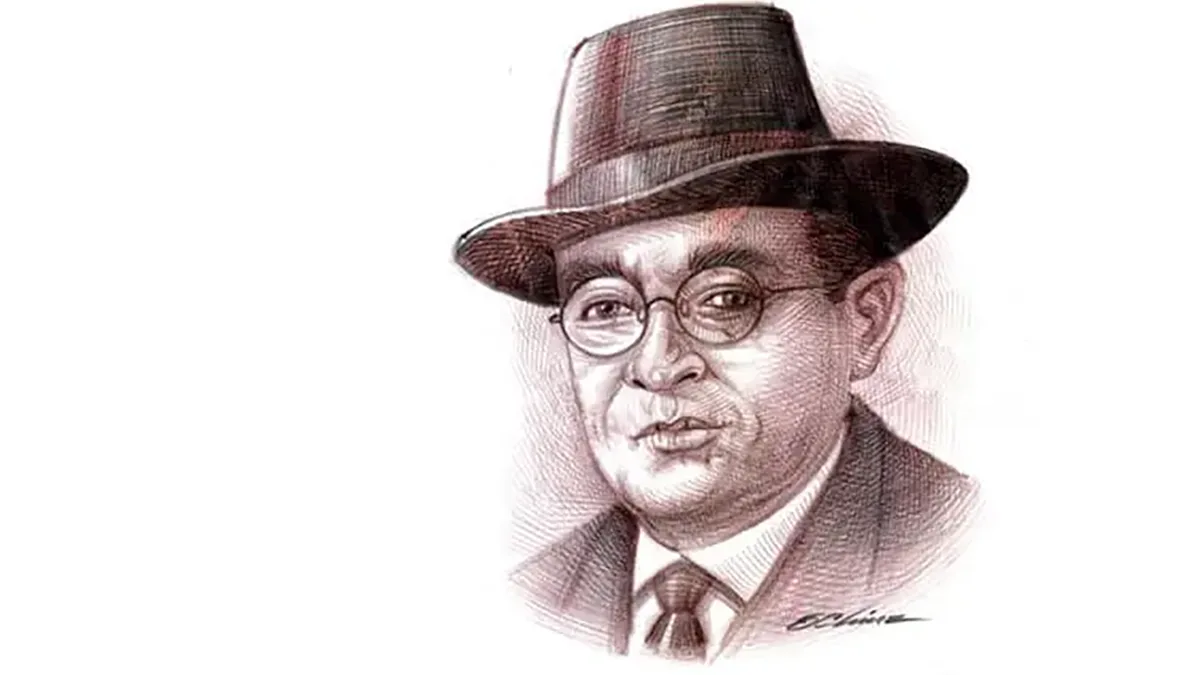Biography of Alfonso Guillén Zelaya

Alfonso Guillén Zelaya was born in the city of Juticalpa, Olancho on June 27, 1887, his parents were Mr. Miguel Guillén and Mrs. Jesús Zelaya, and he was the only boy of six children. He completed his primary and secondary studies in his hometown and then moved to Tegucigalpa where he studied Legal and Social Sciences.
An unknown and tragic incident prevented him from completing his studies, however this did not prevent him from becoming a seasoned journalist who fought against the interests of transnational corporations. This battle against the political and economic influence of Honduras by the company forced him to go into exile in Mexico, the country where he would later die.
From 1919 to 1932 he practiced journalism in several countries: in El Salvador, in Guatemala and in the United States. He was Consul of Honduras in New York, secretary of the Honduran delegation to the Conference for Peace, in Versailles, France. He contemplated -and at the same time studied- the great political phenomena that shook revolutionary Europe, which strengthened his anti-imperialist thinking. He returned to his homeland, in addition to being horrified by the «greatest massacre in history», determined to fight for the pacification of Honduras.
The Tacoma Newspaper
This name has a double echo in the history of Honduras. She was named after the cruise ship on board which the United States government forced the departure of President Miguel R. Dávila in 1911 and the rise to power of Francisco Bertrand and Manuel Bonilla.
This is how Guillén Zelaya called the first newspaper under his direction, in his beloved Juticalpa. Without a doubt, his most important work was yet to come, but this is where his first writings begin, which will gain strength over time.
In 1913, he arrived in Guatemala for the first time, from where he sent his compositions to Froylán Turcios, which were published every month in the Ateneo de Honduras. He also writes for Nuevo Tiempo, from Guatemala. In 1915 he works at the Honduran consulate in New York, with a starting salary of 75 dollars, not enough to live on, according to a letter he sends to his relatives.
At the end of the First World War in 1918, Guillén Zelaya joined Rafael Heliodoro Valle in the Honduran delegation at the Versailles Conference, France, chaired by Policarpo Bonilla. In 1921 he left the United States and returned to Guatemala as Editor-in-Chief of Diario Nuevo, of which he was later appointed Director.
President Carlos Herrera is overthrown in that country and Guillén Zelaya, faithful to the spirit that will accompany him throughout his life, writes the protest document that the journalists presented to the National Congress.
In El Cronista, Guillén Zelaya develops his most valuable journalistic work, with an editorial section that becomes a trench in the hands of this incorruptible patriot along with another great such as Paulino Valladares.
There, Guillén Zelaya wrote from November 18, 1926 to September 3, 1929 anthology editorial articles, not in vain has he been considered «one of the greatest Honduran political editorialists.»
And to show an example is enough. In 1929, the Standard Fruit and Steamship, committed to building -from La Ceiba to Yoro- 26 kilometers of railway per year, pressured the government to reduce its contractual obligations. To do this, it presents a formal request to the National Congress for the number of kilometers to be reduced to 12.
But the motion was defeated by 33 votes against 3 in favor. In a report sent by the head of the US diplomatic mission in Honduras, George T. Summerling, to the Secretary of State of his country, he stated that:
“The attitude of Congress is undoubtedly due in part to the bitter and continuous attacks on El Cronista, by Guillén Zelaya, who remains stubborn even in the face of the persuasion of President Vicente Mejía Colindres. He has tried to eliminate him from the political field, offering him any diplomatic post, but Guillén Zelaya rejects any offer, preferring to stay here and fight everything American and, especially, the Pan American Airways and United Fruit Co contract”.
It is fair to clarify that our writer always had deep admiration for the achievements and potential of the United States, which did not prevent him from severely lambasting its foreign policy towards Latin America.
Guillén Zelaya founded the newspaper El Pueblo in 1931, which operated in the El Olvido neighborhood of Tegucigalpa. El Cronista worked on the right side of La Merced Park.
The lack of payment from subscribers pushed El Pueblo to the close of its functions, which did not lessen the pride that Guillén Zelaya felt for his creation. «Until today there has not been a newspaper in Honduras where the problems, ideas and politics of Honduras have been addressed in a broader way and with greater respect for those who have not thought or did not think like us.»
In 1933, exiled in Mexico City, he coincides with other Hondurans, intellectuals and journalists, among them: Rafael Heleodoro Valle, Martín Paz and Rafael Paz Paredes.
His many facets
As a writer, Alfonso Guillén Zelaya ventured into many genres. Essays, poems, compositions and editorials alternated over time and in all of them he demonstrated his firm social conviction.
He embraced the unionist vision of Morazán, the universal rights of the French encyclopedists, philosophical pantheism and social Marxism, contributing to the strengthening of the trade union movement. As a poet, he was influenced by literary modernism, as can be seen in his essay «Lo Esencial«, where reminiscences of Gabriela Mistral can be seen.
One of the most important works of this olanchano was his essay La inconformidad del hombre, which he read for the first time in 1945, on the occasion of the inauguration of the Faculty of Humanities of Guatemala.
In it, Guillén Zelaya addresses several thoughts that sixty years later are still as valid as they were then. «We have perfected farming methods… and increased crop yields, but we have limited labor effort to a small extent… daily bread is scarce in millions of homes and even in entire villages…».
Exile of Alfonso Guillen Zelaya
The patriotic fervor that Guillén Zelaya inspired by fiery editorials is undeniable. But it is also true that his thought transcended beyond space and time, with essays that revealed a humanistic and universal vision.
Through his multiple articles he lambasted fascism, Nazism, foreign interference and social inequality. She also showed a keen interest and clear insight into issues such as the death penalty, divisionism in Central America, imperialism, guerrilla warfare, democracy, women’s rights, freedom of the press, and current topics in the old world.
He did not tolerate the repression that he had predicted months before if Tiburcio Carías Andino came to power. And that day he arrived. That was how in 1933 he went into exile in Mexico definitively together with his wife Isabel Alger Paz. His death certificate establishes high blood pressure and angina pectoris as the cause of his death.
At 2:15 p.m. he breathed his last. He passed away on September 4, 1947 in Mexico. «Gentlemen -wrote the poet Constantino Suasnavar-: the High Commissioner of Verse, Alfonso Guillén Zelaya, has died». While he lived in the Aztec country he continued to squander the verse and thought that make this Honduran a life worth telling.
Literary work by Alfonso Guillén Zelaya
- The Gold
- Cast Me on the Path
- Earth and Dreamer
- Pablo’s Little House
- The New Days Will Come
- Song to Honduras
- The Essential


